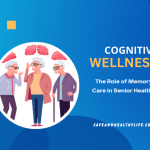
As individuals age, maintaining good mental health becomes increasingly important for overall well-being and quality of life. One crucial aspect of senior mental health that often gets overlooked is socialization.
Contrary to popular belief, socialization remains vital for seniors’ mental and emotional well-being, offering numerous benefits that can enhance their overall quality of life.
5 Reasons Socialization is Important for Senior Citizens’ Mental Health
This blog post explores five reasons why socialization is beneficial for senior citizens’ mental health. From reducing feelings of isolation to boosting cognitive function, fostering social connections promotes happiness, resilience, and a sense of belonging among older adults.
1. Combatting Social Isolation
Social isolation is a prevalent issue among seniors, particularly those who live alone or have limited mobility. Regular socialization helps combat feelings of loneliness and isolation by providing opportunities for meaningful interactions and connections with others.
Engaging in social activities, such as group outings, community events, or volunteering, allows seniors to build supportive networks and forge new friendships, reducing the risk of depression and anxiety. Maintaining social connections can provide a sense of purpose and belonging, fostering a positive outlook on life and increasing overall life satisfaction.
By actively participating in social activities at independent living facilities and staying connected with friends, family, and community members, seniors can create a sense of community and support that contributes to their mental and emotional well-being.
2. Stimulating Cognitive Function

Social interaction stimulates cognitive function and helps keep the brain sharp as we age. Engaging in conversations, playing games, and participating in group activities challenge the mind and promote cognitive agility.
Regular socialization can help seniors maintain mental acuity and delay age-related cognitive decline, reducing the risk of conditions such as dementia and Alzheimer’s disease. Socializing with others exposes seniors to new ideas, perspectives, and experiences, which can enhance cognitive flexibility and creativity.
Whether engaging in stimulating discussions or learning new skills together, social interaction provides valuable mental stimulation that contributes to overall brain health and vitality. By prioritizing socialization, seniors can proactively preserve their cognitive function and enjoy a higher quality of life as they age.
3. Promoting Emotional Well-Being
Socialization promotes emotional well-being and resilience among seniors. Having a strong support network of friends, family, and peers provides a valuable source of emotional support during challenging times.
Sharing experiences, expressing emotions, and receiving encouragement from others can help seniors cope with stress, grief, and other emotional struggles more effectively. Social interaction promotes the release of feel-good hormones such as oxytocin and serotonin, which contribute to a sense of happiness and contentment.
Engaging in enjoyable social activities, such as attending social gatherings or participating in hobbies, can uplift mood and reduce symptoms of depression and anxiety. By nurturing meaningful relationships and staying connected with others, seniors can cultivate a strong sense of emotional well-being and resilience that enhances their overall quality of life.
4. Improving Physical Health

Socialization has positive effects on physical well-being. Engaging in social activities encourages seniors to stay active and maintain a healthy lifestyle, reducing the risk of chronic health conditions such as heart disease, diabetes, and obesity.
Whether participating in group fitness classes, walking with friends, or dancing at social events, staying socially active promotes physical activity and mobility. Social interaction has been linked to lower levels of inflammation and improved immune function, leading to better overall health outcomes.
Seniors who maintain strong social connections tend to have better cardiovascular health, lower blood pressure, and a reduced risk of age-related illnesses.
5. Enhancing Overall Quality of Life
Ultimately, socialization enhances seniors’ overall quality of life by promoting a sense of purpose, fulfillment, and happiness. Meaningful social connections provide opportunities for laughter, joy, and shared experiences that enrich daily life.
Whether spending time with loved ones, participating in group activities, or volunteering in the community, seniors derive immense satisfaction from being part of a supportive network of peers.
Socialization fosters a sense of belonging and connectedness that contributes to a positive self-image and greater life satisfaction. Seniors who maintain active social lives report higher levels of happiness, resilience, and emotional well-being compared to those who are socially isolated.
Socialization promotes mental health and well-being among senior citizens. From combating social isolation to stimulating cognitive function, fostering emotional well-being, improving physical health, and enhancing overall quality of life, the benefits of social interaction are undeniable.
As seniors age, it’s important to prioritize opportunities for socialization and maintain strong connections with friends, family, and community members. By staying socially active and engaged, seniors can enjoy a fulfilling and rewarding retirement. Senior citizens can then enjoy a life characterized by happiness, resilience, and a sense of belonging.
About The Author:
Stacey Smith is a freelance health writer. She is passionate about writing about women’s health, dental health, diabetes, endocrinology, and nutrition and provides in-depth features on the latest in health news for medical clinics and health magazines.




